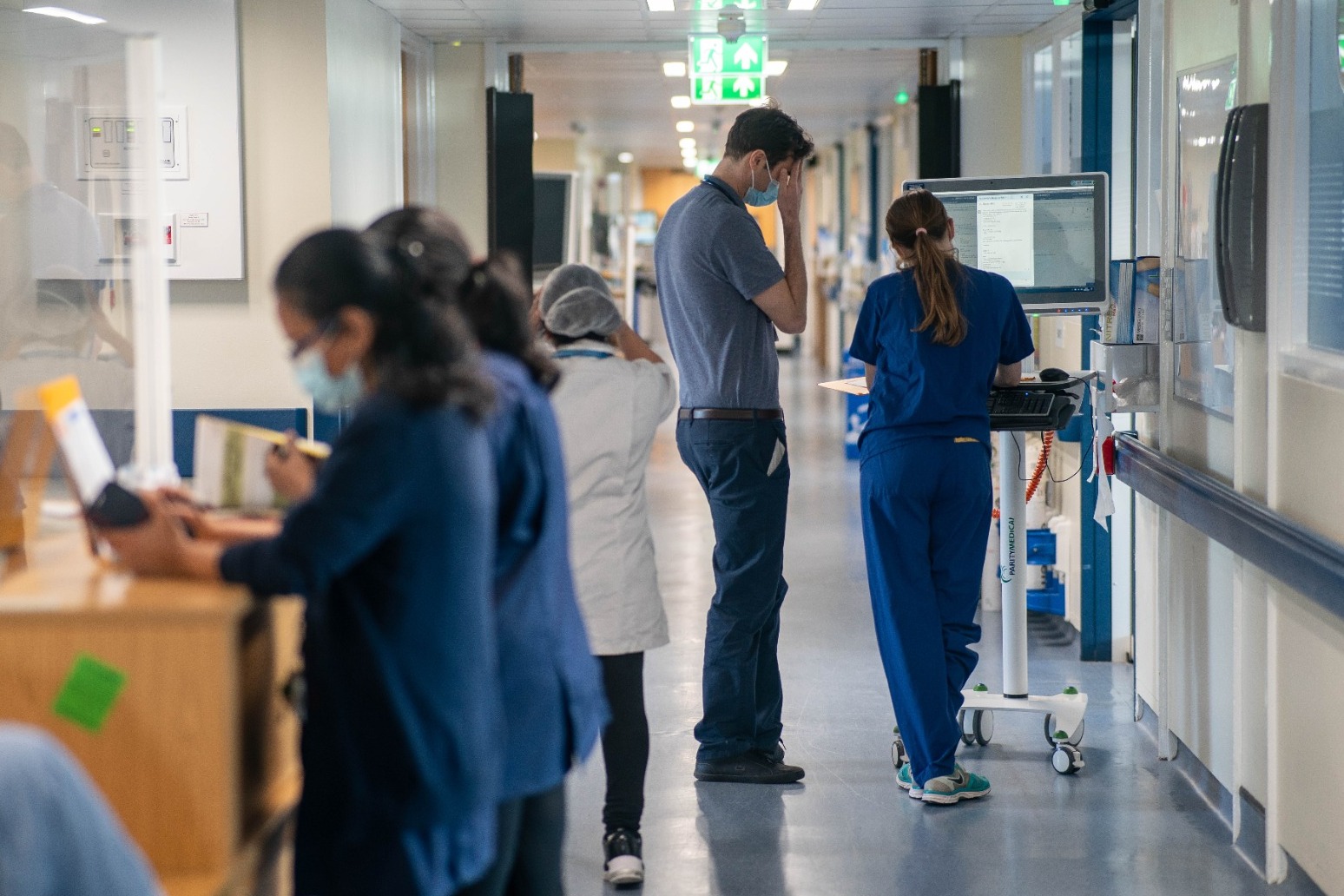-
 play_arrow
play_arrow
DukeBox Radio The Voice Of The Wellington Academy
-
 play_arrow
play_arrow
Jetstream Episode #15 - Festival of Education Celebration
NHS waiting lists could top eight million by summer regardless of strikes


NHS waiting lists could top eight million by next summer, regardless of whether medics continue striking over pay, according to new analysis.
The Health Foundation is calling for changes in policy and continued investment to clear the backlog.
In a new report, the organisation modelled four different scenarios and concluded, based on current trends, that NHS waiting lists could peak at eight million by August 2024 if there is no more strike action by healthcare workers before starting to come down.
If strikes were to continue, the list could be 180,000 higher, it said.
Earlier this month it was revealed that 7.75 million people were waiting for NHS treatment as of August, the highest figure since records began in 2007.
Charles Tallack, director of data analytics at the Health Foundation, said: “Behind these numbers are people anxious for a diagnosis, patients in avoidable pain and lives put on hold.”
Prime Minister Rishi Sunak made tackling waiting lists a priority at the beginning of 2023, but the Government has since blamed ongoing strikes in the NHS for making the issue more challenging.
Mr Tallack added: “While industrial action has a range of impacts on NHS organisations, the strikes have only directly resulted in a small increase in the size of the overall waiting list.
“Ministers have been quick to blame industrial action for the lack of progress in reducing the waiting list but the roots of this crisis lie in a decade of underinvestment in the NHS, a failure to address chronic staff shortages and the longstanding neglect of social care.”
Different groups of healthcare workers have been striking since December 2022 – including nurses, radiographers and ambulance drivers as well as medics – with the action impacting more than one million appointments.
However, the Health Foundation’s analysis only includes disruption caused by the junior doctor and consultants strikes, due to the direct impact on the waiting list for consultant-led care.
Saffron Cordery, deputy chief executive at NHS Providers, said the report “will fuel trust leaders’ concerns that the record-high waiting list will keep growing before it comes down”.
“The projected increase alongside the rising financial impact of industrial action underscores the urgency of resolving the strikes,” she added.
“While strikes are not the leading cause of longer waits, the report confirms they exacerbate the issue by swallowing up NHS resources that could be better spent on cutting care backlogs.”
Mr Tallack also highlights how the pandemic “heaped further significant pressure on an already stressed system”, but said “waiting lists were already growing long before Covid”.
He added: “Eliminating the backlog for elective care and returning waiting times to 18 weeks is entirely possible – it was done in the early 2000s and it can be done again. However, it will be very challenging and will require sustained focus, policy action and investment.”
An NHS spokesperson said: “While the analysis itself acknowledges that the impact of strikes is significantly underestimated and NHS staff and patients won’t agree that the impact has been small, with more than one million appointments and procedures rescheduled, there has continued to be important progress in bringing down the longest waits – two-year waits have been virtually eliminated and waits of more than 65 weeks have more than halved.
“The NHS is seeing high levels of demand, with more people coming forwarding for the care they need and referrals increasing at an even higher rate than before the pandemic, which is why our elective recovery plan and tools like community diagnostic centres, surgical hubs, and technology like robots and AI are essential to tackling the backlog and ensuring everyone gets the care they need as quickly as possible.”
However, Tim Mitchell, president of the Royal College of Surgeons of England, said the Health Foundation’s figures are “sobering”.
“Waiting lists have ballooned over the past decade due to underinvestment and workforce shortages,” he added.
“The Covid-19 pandemic has exacerbated these pressures.
“While industrial action has contributed to delays, the roots of this crisis precede the strikes.”
Mr Mitchell called for “transformative solutions” to tackle waiting lists in a “meaningful and sustainable way”.
He added: “Crucially, we must also improve staff morale and retention. The government’s commitment to grow the healthcare workforce is welcome. However, recruiting new staff is only half of the solution.
“Providing a supportive, well-resourced working environment is vital to reducing burnout.”
Shadow health secretary Wes Streeting said: “This makes clear that NHS waiting lists would be the highest in history today even without industrial action.
“It blows out of the water the Conservatives attempts to blame doctors and nurses for the crisis in the NHS.
“Rishi Sunak’s failure to stop the strikes has only made a terrible situation worse, leaving even more patients waiting in pain and discomfort, unable to live their lives to the full.”
NHS strikes escalated last month with the first-ever joint walkout by junior doctors and consultants in history, which led to a second three-day spell of co-ordinated action in early October.
The British Medical Association (BMA) said consultants will hold off calling more strikes until November to allow for negotiations.
They agreed to talk with ministers earlier this month, with the BMA’s junior doctors committee following suit.
The Department of Health and Social Care has been approached for comment.
Published: by Radio NewsHub
Written by: admin




